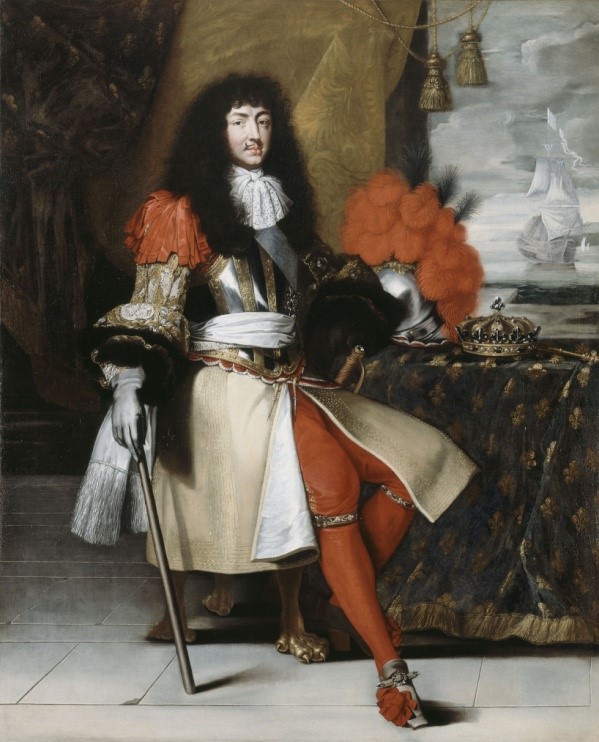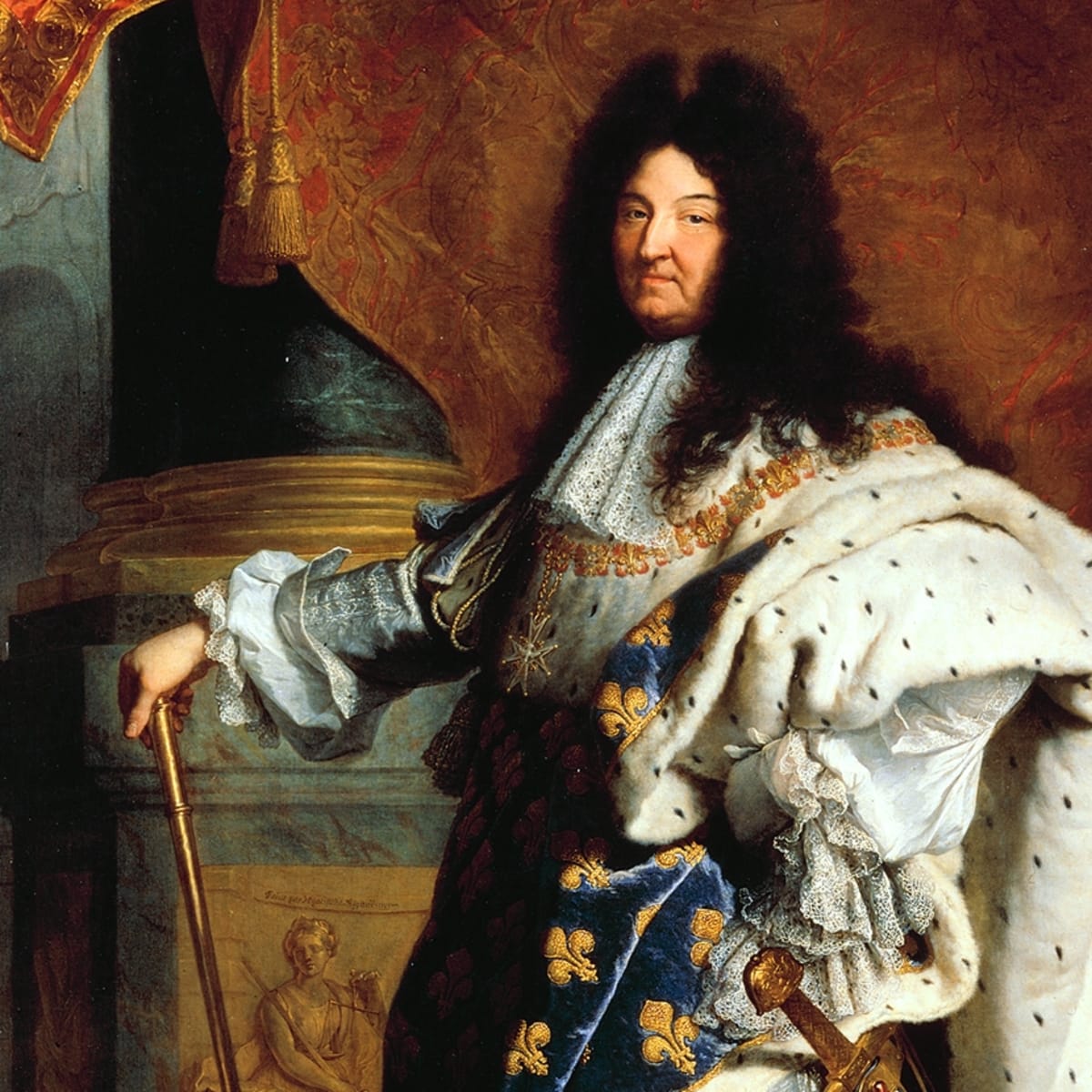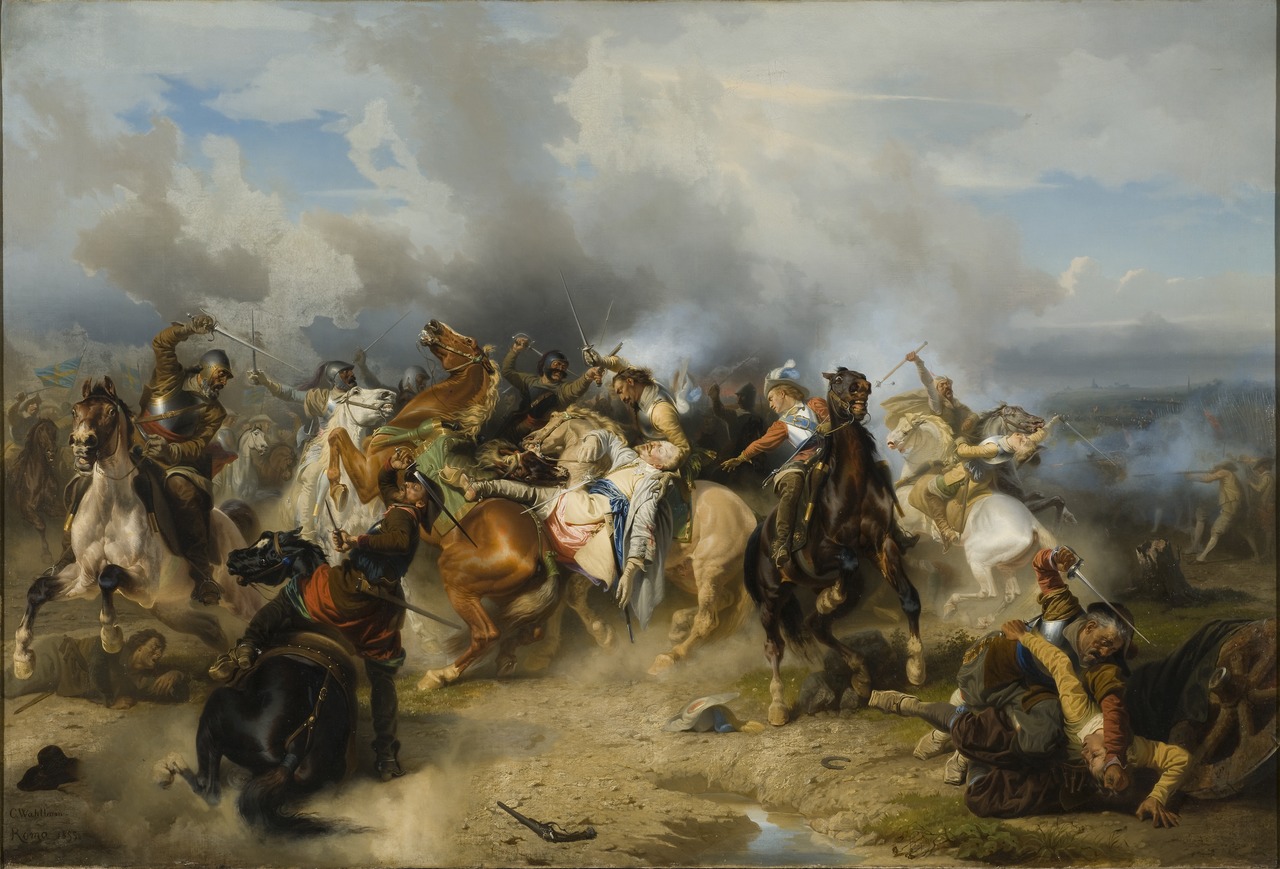
|
|
|
|
|
|
|
|
||||||||
The marquis and the King
Philippe's world view, as well as his scale of values, will undergo strong changes in the course of the story, as a consequence of that disruptive event that will be his love for Angélique. However, one point will remain firm and absolute: his loyalty and submission to the King.
|
The Marquis du Plessis-Bellière is "the nobleman par excellence" (says Ninon) and the great French nobility has military and feudal origin. For Philippe, the feudal pact is the basis of society: the vassal and his lord have mutual obligations and the primary precondition for this pact being respected is allegiance.
Philippe “belongs only to the King and to himself." (says Ninon once again). To belong to oneself means recognise oneself total freedom of action, and the libertine and dandystic aspect of the Marquis' personality has already been mentioned.
Since his childhood Philippe has known the filth of the world, conspiracies, intrigues, betrayals, hypocrisies, vanity, lack of feeling and greed for money, for power and for pleasures. The court is defined by Vincent de Paul in the first volume as an environment of "turpitudes" and "rottenness ". The King will call his courtiers "wild beasts and birds of prey" and the court a place where "you must have a beak and nails and claws to survive". His beauty has not spared Philippe shame and humiliation. The result has been a nihilist worldview (nihilism and dandysm are often linked), with an almost annulled scale of values. Almost. Because one value resists so much decay: the honor of the feudal pact.
The King’s displays of friendship and favour for Philippe will be numerous and relevant during the following years, both in the period of Mazarin and after the seizure of power by Louis XIV (1661): advancement at the court and in the army, gifts of charges ( which Philippe often resells to pay debts), privileges in the service to the person of the King and in his attendance. The Marshal will be protected when his outrageously violent behavior in war will arouse public indignation. However, the King knows that he can count on him (and there aren’t many trustworthy people around him), "he loves him for his beauty and for his bravery", he considers him an ornament for the court, he always goes hunting with him. The King, the only Philippe’s masterFor his part, Philippe has no other master but the King: the King’s wish is his command, every slightest discontent must be prevented and carefully avoided. Philippe knows what the sovereign likes or dislikes and, as a perfect courtier as well as a faithful friend, he does his best not to displease him. Therefore, he will get very angry in all the circumstances in which Angélique will embarrass him badly before the King.
Followed, the next morning, by a second conjugal scene (a bourgeois behaviour absolutely unseemly between two courtiers). The King has to intervene personally once again to appease the Marquis' wrath and to make sure that he allows his wife to participate in the hunt the following day. In order to demonstrate to the King that everything worked out and that the ‘ménage’ is calm, Philippe will show himself with Angélique held on tight like in a vise, the night of the comedy. The position in plain sight and their attitude are designed to satisfy the King's desire. Philippe will be forgiven but sent to the army. |
Leaving the court is a punishment that Philippe will suffer several times during his marriage, whenever the King regards it as appropriate.
And never will the Marquis permit himself to criticize the sovereign's decisions: "The King is the master", he will tell Angélique, cutting short the conversation , when she asks him why he alone is sent to the army so in advance of the military campaign (scene of the evening before the departure for Flanders).
Respect towards the KingNothing can anger Philippe as much as the lack of respect towards the King. An example is the barn scene, when, after months during which he had not shown up, the marshal turns up before his wife, because he was told that she replied impertinently to His Majesty, who did her “the honour of speaking directly” to her. Philippe is furious: how dare "a little peasant girl with a runny nose and dirty feet", "a tattered short skirt”, “hair hanging down in your eyes", respond to the King insolently? He reminds her that she came out of a ruined castle and that she is more comfortable in a stable than at court. Philippe's words are accompanied by violent gestures. In the same scene, Philippe points out very clearly his submission to the King. When Angélique tells him that she replied laconically to the sovereign for valid reasons, Philippe is horrified and he is just beside himself with anger: Angélique has not still understood that “the King is the King. You owe him obedience, respect and loyalty ”. And to his wife, who provokes him by asking him how she should behave in case His Majesty fancies making her his mistress, he responds promptly: "Agree". And he repeats: “The King is our master. He has all rights over you.” And he adds: “Everything I own belongs to the King. In my life I would never refuse him anything, from the smallest trifle right up to my life itself”.Louis XIV has Philippe at his total disposal: "My sword is at the service of the King" (he says in the scene of adultery, refusing to fight a duel). The service of the King at court or in war is beyond question. All Philippe's possessions, all his affections, his own life are available to His Majesty. The most loyal noblemanNot all nobles were as loyal and amenable as the Marquis du Plessis-Bellière. In the marital sphere, Monsieur de Montespan is not at all complacent to the royal adultery of his wife, he makes scenes and does clowning at the court, so he will be confined to his fiefdom in Roussillon. But, much more seriously, some nobles have always been willing to plot against the King and to betray him. Louis XIV goes so far as to say that there is not any of them who is not ready to rouse their fiefs against him, if left free. He remembers only too well the betrayal of his own relatives (the Prince of Condé, Mademoiselle de Montpensier) at the time of the Fronde, when, as a child, he had to escape incognito in a carriage from Paris in revolt, together with the Queen and Mazarin. This is why he tries to attract all the nobility to Versailles, so to keep "wild beasts and birds of prey" under his lash, as he says to Angélique in the park of Versailles. Is it perhaps to make up for the rebel past of his parents, especially of his mother, that Philippe wants to be so submissive to the King? Or perhaps to redeem in his own conscience the abortive attempt to poison Cardinal Mazarin and perhaps the King himself, planned by Condé and his followers, among whom his own parents, in his own castle?
In the case of Angélique, does the King or doesn’t he intend to make her his mistress? We will try further to answer this question, which is not very simple, since various statements and behaviours of the sovereign seem contradictory. But for Philippe the answer is obvious and his decision follows consequently: Angélique is his life and if the King wants the former, he will have to have the latter as well. « Back to the Philippe du Plessis-Bellière: Part I |


